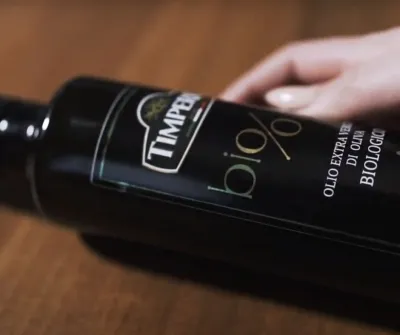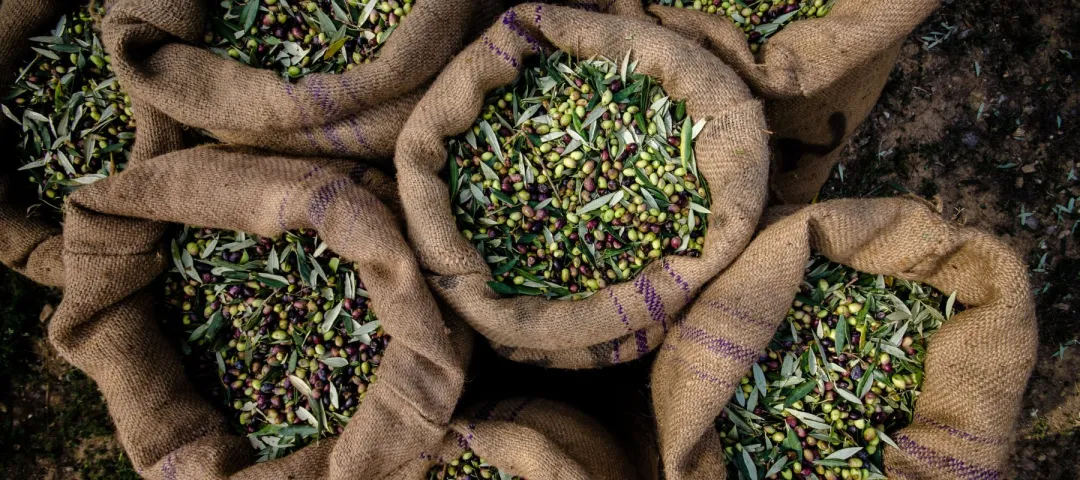General information
RDP Priority
- P3. Food chain and risk management
RDP Focus Area
- 3A: Agri-food chain integration & quality
RDP Measure
- M04: Investments in physical assets
Beneficiary type
- Small-Micro Enterprise
Summary
The Timperio family’s olive oil business in southern Italy works with local ‘Gentile Nera’ olives, due to their unwavering freshness and quality that has earned the company a reputation for excellence extending far beyond their community. Market demand for extra virgin olive oil (EVOO) helped to push the family firm to draw up development plans that would modernise olive pressing and oil bottling.
CAP funds helped cover investment costs involved with a new production plant boasting a continuous cold extraction cycle, which streamlined production activities while preserving the delicate flavours and health benefits of the EVOO through a faster turnaround time from harvest to production and cold extraction.
This rural development project ensured consistent high-quality EVOO, a testament to their dedication to both tradition and innovation, and also elevated the company’s market positioning and environmental sustainability.
Results
The new dedicated bottling line for EVOO and BIO EVOO (organic-certified EVOO) provided scope for existing lines to be used for flavoured EVOO, in turn optimising the bottling process for each type of EVOO.
Specific results included:
- Increased production capacity to 35 tonnes of olives per hour - a significant leap from the previous plant's production capacity of 18 quintals per hour.
- 30% increase in annual production (over 8 000 tonnes of olives in a 30-day working period with 8-hour shifts).

Promoter
Oleificio Timperio
Funding
Total budget 473 550 (EUR)
RDP support: 189 420 (EUR)
Private/own: 284 130 (EUR)
Keywords
Ressourcen
Documents
Links
Context
Olive oil production in Italy is a cornerstone of the country's agricultural economy, providing employment to thousands while also contributing significantly to both domestic and international markets. The competitiveness of the sector is aided by automation, and care is required to balance opportunities from efficiency with quality safeguards protecting consumer standards.
Benefits from modernisation include helping traditional olive oil businesses adapt to changing technological landscapes. Automated systems can also facilitate traceability and consistency during production processes, providing a competitive edge with market demands for stringent quality.
Additionally, automation can lead to more sustainable practices that better optimise resource use and waste reduction, aligning with increasing consumer demand for environmentally friendly products. Shifts towards automation can also help stimulate innovation, encouraging producers to develop new technologies and practices that further enhance sustainability and efficiency.
An Italian company called The Mill has been producing EVOO since 1943 in the Molise region, with a preference for particular endogenous olive varieties such as ‘Gentile Nera’ of Colletorto. This company is run by the Timperio family.
In recent years, automation advancements brought a new set of challenges for their family firm because as farmer yields began to soar thanks to developments in modern harvesting, the harvest season, once spread out, became shorter. This has led to large daily increases in the number of olives that need milling. Compounding this challenge was a steadily increasing market demand for high-quality products.
The combination of these factors created a pressing need for modernisation and innovation in The Mill’s production of EVOO.
Objectives
CAP co-financing helped the family business to achieve three strategic growth goals:
- increase the added value of production through innovations in products, processes, organisation and marketing;
- improve technological aspects and reduce costs to be competitive within national and international markets;
- improve manufacturing processes from the point of view of environmental sustainability by reduced consumption of energy and water.
Activities
This investment project focused on the automated pressing of olives and bottling of their oil.
A production upgrade involved the acquisition and installation of a new cutting-edge continuous cold extraction cycle. Cold press extraction is a processing method relying on maintaining low temperatures throughout the entire process to preserve the quality and natural characteristics of olives.
New bottling equipment was co-funded by the CAP to help optimise dedicated bottling for EVOO.
The project considered the capacity of olive growers/farmers to supply olives, ensuring a sustainable balance with the new plant's processing capacity. In turn, this approach fostered a strong and reliable relationship between the firm and its network of olive farmers.
The company also consulted with international market operators to verify product demand in terms of quantity and quality. This collaboration ensures the firm aligns its production with international market needs, potentially leading to increased sales and brand recognition.
Main results
Overall, project outcomes streamlined production while maintaining the delicate flavours and health benefits of their EVOO through a faster turnaround time from harvest to production and cold extraction. The new dedicated bottling line for EVOO and BIO EVOO (organic-certified EVOO) provided scope for existing lines to be used for flavoured EVOO, in turn optimising the bottling process for each type of EVOO. Specific results included:
- increased production capacity to 35 tonnes of olives per hour - a significant leap from the previous plant's production capacity of 18 quintals per hour. In turn, the plant's efficiency allows for processing over 8 000 tonnes of olives in a 30-day working period with 8-hour shifts, representing a substantial boost in production.
- 30% increase in annual production and product value. Improved production achievements comprise improved quality, enabling the company to sell EVOO products at higher prices.
- by selling their EVOO at a higher premium, the company can ensure fairer prices for local olive farmers, the primary source of their raw materials.
- the new plant's efficient operation leads to lower unit energy consumption, minimising environmental impact risks.
- the new cutting-edge technology for oil pressing needs less water for dilution compared to the previous plant and enables wastewater reuse, thereby reducing water consumption.
- the modernised operations resulted in a more efficient use of labour resources. By improving workflows, the company experienced an increase in output per worker.
Key lessons
- Efficiency gains achieved through innovative processes led to a reduction in production costs, translating to an improvement in the company's financial performance.
- This innovative production facility streamlined work organisation, leading to a more efficient workflow for processing olives and managing production.
- Advanced technology allows for partial reuse of wastewater as dilution water for olive paste, reducing the amount of wastewater even further.
Orlando Timperio

